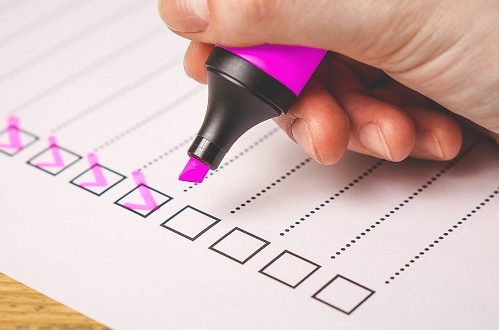If order input shows signs of slowing, or you wish to grow, it time to get marketing, but where do you start?
Getting Started with Marketing, preliminary steps
It’s very easy to waste money on marketing. Although it’s easy to blame agencies, the root problem is often closer to home. To be successful and to provide the required return, marketing campaigns need a strategy and careful planning. Avoid at all cost, the Monday morning knee jerk reaction of placing advertising because last weeks orders slowed.
Here are some key points you need to think about, ideally before you speak to an agency;
What do you hope to achieve?
The simple answer is probably “more sales.” in practice it’s worth thinking about a bit more. Are you looking for prospects or on-line sales. It could be you want to find new dealers or agents. Or, you may just wish to raise general awareness of who you are and what you do. All require a different marketing strategy.
What do you want to promote?
It may sound obvious, but it’s not always clear. Services are more difficult to define than things you can touch! It is useful to “productise service offerings. Follow this link for more information. There is no point in promoting a product or a service unless you have the capacity to deliver it. The clearer you can define what it is you want to promote the easier it is to implement.
Buyers like an offer, think about what you can do to make your offer more attractive. Remember it’s normally more cost effective to add services than to discount prices.
Who do you want to sell to?
Few products or services have universal appeal. Depending on what you are offering, the audience is likely to be different. The more accurately they can be targeted, the better will be the return on a campaign.
Think about three main prospective customer categories;
- Existing customers or non customers with similar needs (such as their competitors), sometimes referred to as the Comfort Zone. If you are already well known here, promotion may not generate much new business but it will though help you consolidate and maintain it.
- Potential customers in different areas. This could be geographical or in a different market sector. It could be one in which you are virtually unknown but your products could meet customer needs. Some companies offer the same, or only slightly different products under different names to suit different markets. This is where most marketing pounds are likely to be needed but also where most growth opportunity is likely.
- Test zone, where you are unsure a market exists, or how well your product fits the requirements. Often a product is tested in a small geographical area or in a defined market sector.
How will you handle enquiries
It’s surprising how often this stage is neglected. Advertising placed but what happens if someone is interested and wants more information. They are not likely to be impressed if there is no telephone number or email address, or when tried, they are ignored. Websites that don’t have information about the offer, are out of date or even missing. Staff that are not briefed is another common issue.
Before starting a campaign, you need to know how interest will be handled throughout your organisation.
Set your marketing budgets
Decide how much you are able to spend. If you are entering a new market, more expenditure is needed. Spending too little and you will make no impact, spending too much and it may cause you other issues! Don’t put all your eggs in one basket, some budget is needed for ongoing marketing to maintain awareness.
The stages of a marketing campaign
Until you have given thought to the points above, delay spending your money! Here is not-exhaustive checklist to consider;
Strategy Summary
Write down the points from the section above, this forms the basis of a Briefing Document to discuss with agencies.
Website and Social Media
Most marketing ends up with a visit to your website or possibly your social media pages. These are your shop windows. A poor online presence is a business suffocator. Over 50% of browsing is now from mobile devices, so your website must be mobile responsive. It needs to be attractive, relevant, up to date, fast to load and easy to navigate.
Social Media also needs looking at. Professionals should be present on LinkedIn. Companies selling to consumers need to be there, choosing the right platform for the target market.
If you plan to sell online, the website will need to updated, make sure there is all the information there, a potential customer may need. Screwfix is a good example of a well structured online shop.
Talk to agencies
With your product and briefing ready, you can talk to agencies. They should be interested in you, ask questions and not try selling to you straight away. The agency should guide you on what tools to use and when, be wary if they say one tool will do everything. Make sure they are aware of budgets. They should recommend times and platforms and meet your budgets.
Make sure influencers in your industry are aware of what you are doing. Public Relations or PR needs personal time, but good reviews and recommendations are valuable.
Research and Testing
Before you out to the world, all guns blazing and spending money, it’s wise to do some checks first. If you providing a physical product, you need to do beta testing. Find out what is good and what is not so good. Get as much feedback as you can. Consider test marketing in a sector or place, by trying different tools and variants (designs, subject lines etc.) you can see what works best.
Preparation and Training
By now, you should know what you plan to sell, how you will market it and what it will cost etc. Before opening the shop’s doors it’s important to have everything ready. Make sure staff are trained, telephones manned and IT systems updated.
Conversion refers to the converting of interest into your original goal. This can be the filling in of a contact form, a sale through an online shop or something else. It can be improved by using dedicated website pages known as landing pages. Let’s say you are offering a 15% discount, if someone clicks on your offer that we will expect consistency and see the offer. If they are simply routed to a contact form, it’s highly likely they will browse away – sales lost!
Start the campaign, monitor and tweak
This is where your agencies earn their money. Throughout the process they should monitor effectiveness and make necessary changes to improve it.
Review
After every activity, its success needs to be reviewed and lessons learnt
Maintenance
Most forms of advertising is short term. Being bombarded daily with something new, we soon forget. To maintain interest ongoing promotion is required.
 B2B-Club Connecting SME's Nationwide
B2B-Club Connecting SME's Nationwide


